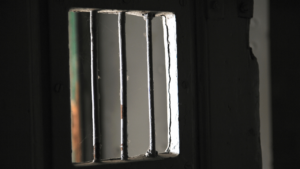Russians Are Torturing the “Kherson Nine” to Refuse Lawyers
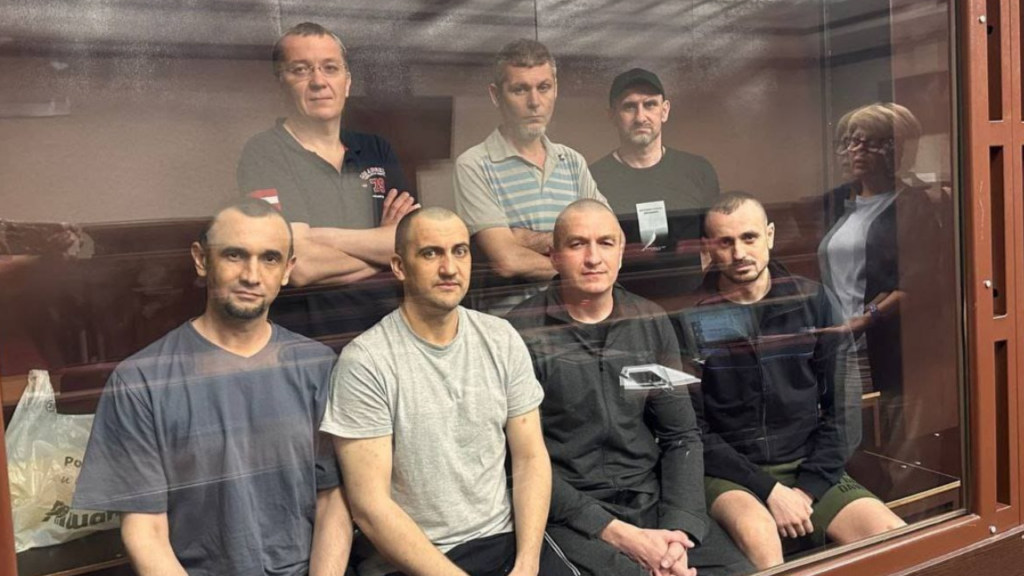
In the summer of 2022, while Kherson was still under occupation, Russians abducted nine civilians — Serhii Ofitserov, Oleh Bohdanov, Yurii Tavozhnianskyi, Serhii Kabakov, Serhii Kovalskyi, Kostiantyn Reznik, Serhii Heidt, Yurii Kaiov, and Denys Lialka. They were accused of “preparing and committing an act of international terrorism.” Initially, the occupiers transferred the men to Simferopol, then to the Lefortovo detention center in Moscow. They are currently being held in Rostov.
“My Body Was Blue”
One of the captives, Denys Lialka, is a former soldier. When Russia launched a full-scale war against Ukraine, he stayed in Kherson. First, he volunteered, and later, he opened a food stall.
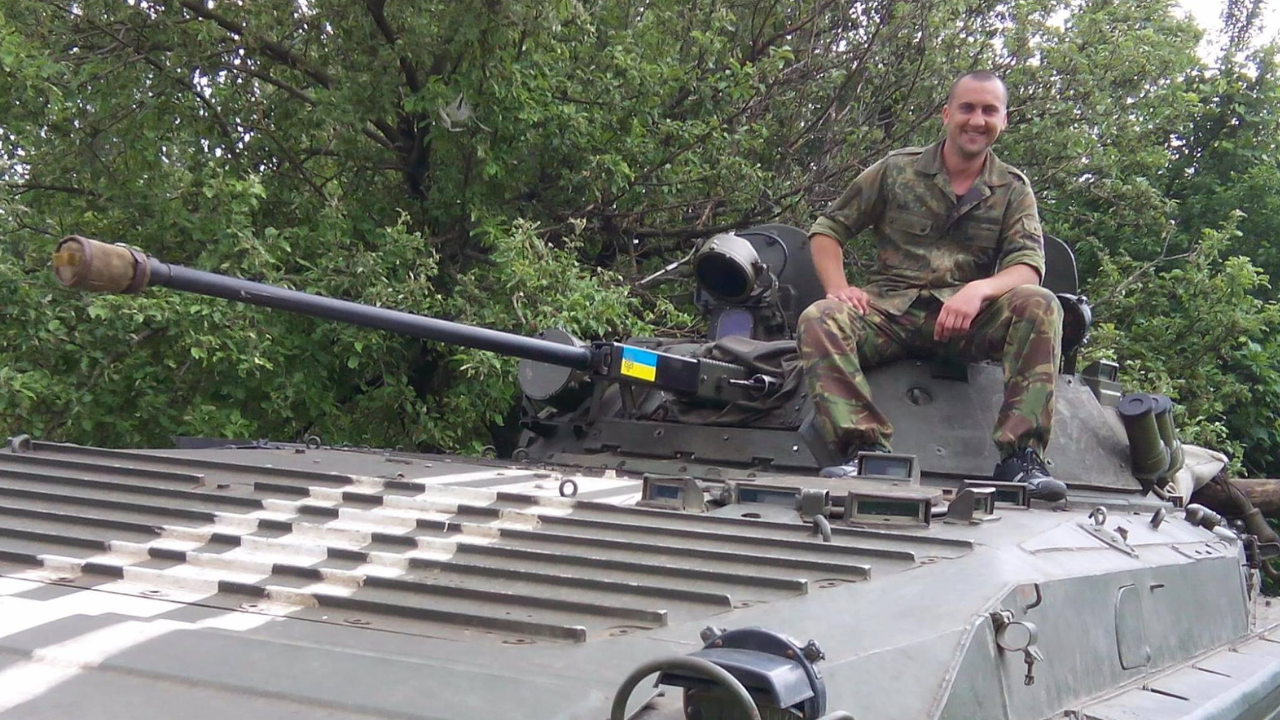
Denys Lialka during his military service. 2015
In early March 2022, armed DPR fighters broke into a house in the village of Tiahynka, where Denys’ father used to live. They were trying to find Denys, searched the house, checked his father’s phone, and then left. A few months later, on August 10, contact with Denys was suddenly lost. A week later, an acquaintance told his sister Yuliia that Denys had been delivering medicine to occupied Kherson when Russians detained the bus. Denys’ whereabouts remained unknown.
A few days later, Denys Lialka’s phone turned on, but he didn’t answer any calls. A month later, the woman whose apartment Denys had been renting contacted Yuliia. She told her that the door to his home had been broken down and the place had been looted. Denys’ sister and father searched for him in Kherson’s detention centers, but their efforts were in vain. The occupiers told them to go to Kakhovka to file a report. However, the journey was life-threatening—Russian forces were shooting at civilian cars passing near the hydroelectric power station.
The family found out that Lialka had been held in the basement of the Main Directorate of the National Police of the Kherson region only in 2023. There, the occupiers would torture the man with electricity, beat him, and threaten to shoot him. Denys was forced to reveal the location of a weapons cache and confess to whom he had allegedly killed. From time to time, the Russians would take the prisoner to his home and work, hoping that the SSU representatives would contact him. Afterward, they would return him to the basement. When Lialka insisted that he knew nothing, the Russians would torture him again. As a result of the abuse, Denys would lose consciousness.
“My body was blue,” he recounted.
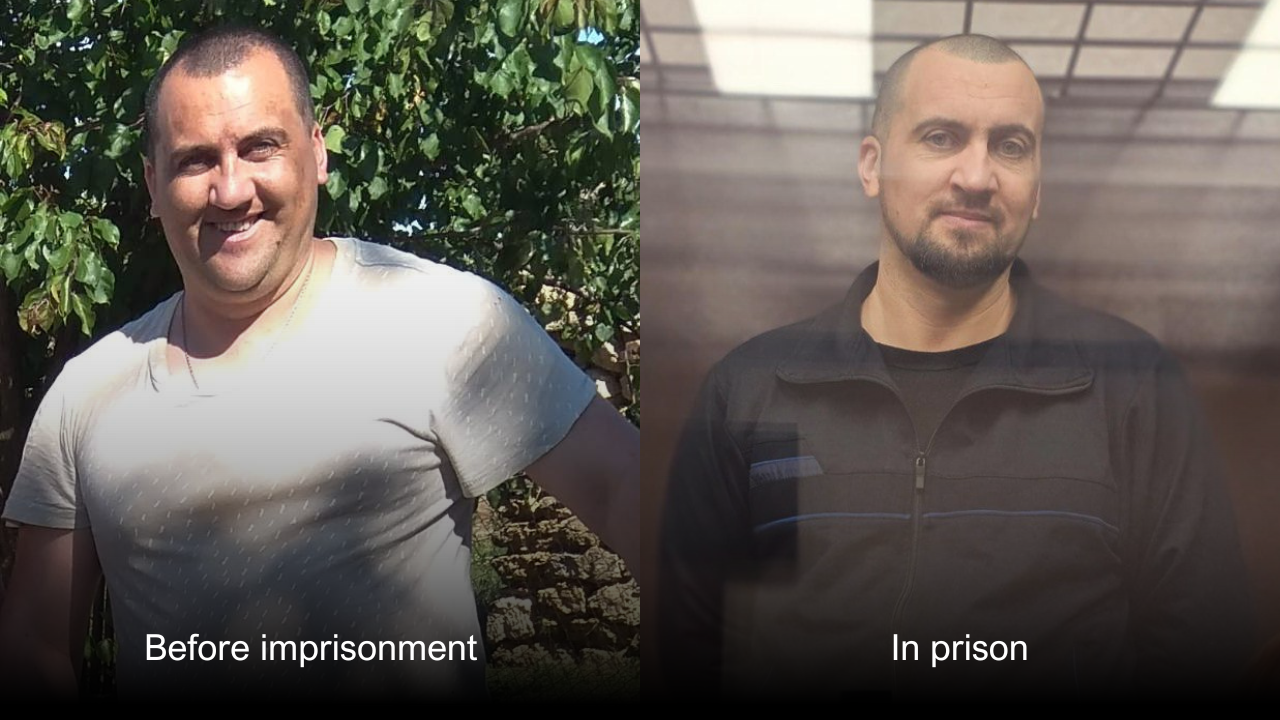
Denys Lialka before his abduction (on the left) and during his illegal trial
Russian Roulette and Electricity
A month after her brother’s abduction, Yuliia received a call from a so-called state-appointed lawyer, who informed her that Denys was in one of the detention centers in Simferopol. There, the Russians did not allow the prisoners to go for walks, receive letters, or get parcels from their families. In Simferopol, the captives were interrogated daily, hardly fed, and denied water. Additionally, the guards threatened the Ukrainians with weapons.
“If you were hungry and they brought you food, they would knock on the cell door, and you would stick your head out through the little window. And it was a roulette game: the guard would point a gun at you and shoot—if the bullet didn’t hit your head, then you would eat,” Yuliia recalls her brother’s testimony.
The Russians would also beat Denys, handcuff him to metal bars, and torture him with electricity. As a result of the torture, he developed problems with his teeth, nervous system, and knees. The occupiers also broke Denys’ ribs, and he lay on the floor for two months, unable to get to his feet. When asked for medical assistance, the Russians would joke, “You have hypothermia from your trenches.”
Illegal Trials for “Terrorism”
At the end of October 2022, Yuliia received a call from a so-called state-appointed lawyer, who informed her that the Russians had transferred the “Kherson Nine” to the Lefortovo detention center in Moscow. Since he barely communicated with Denys’ sister, Yuliia found another lawyer. Only then was she able to correspond with her brother. She learned that in Lefortovo, they stopped beating the prisoners, the prisoners were given better food, and they were allowed to go for walks. However, the captives faced psychological pressure—they were forced to sing the Russian national anthem and were kept in cells with Russian criminals who provoked conflicts about the war. The Russians also refused to provide medical assistance to the Ukrainians. When Yuliia appealed to the ICRC and the organization’s representatives made an attempt to inspect the conditions of detention of Ukrainians in the Lefortovo detention center, the guards refused to let them in.
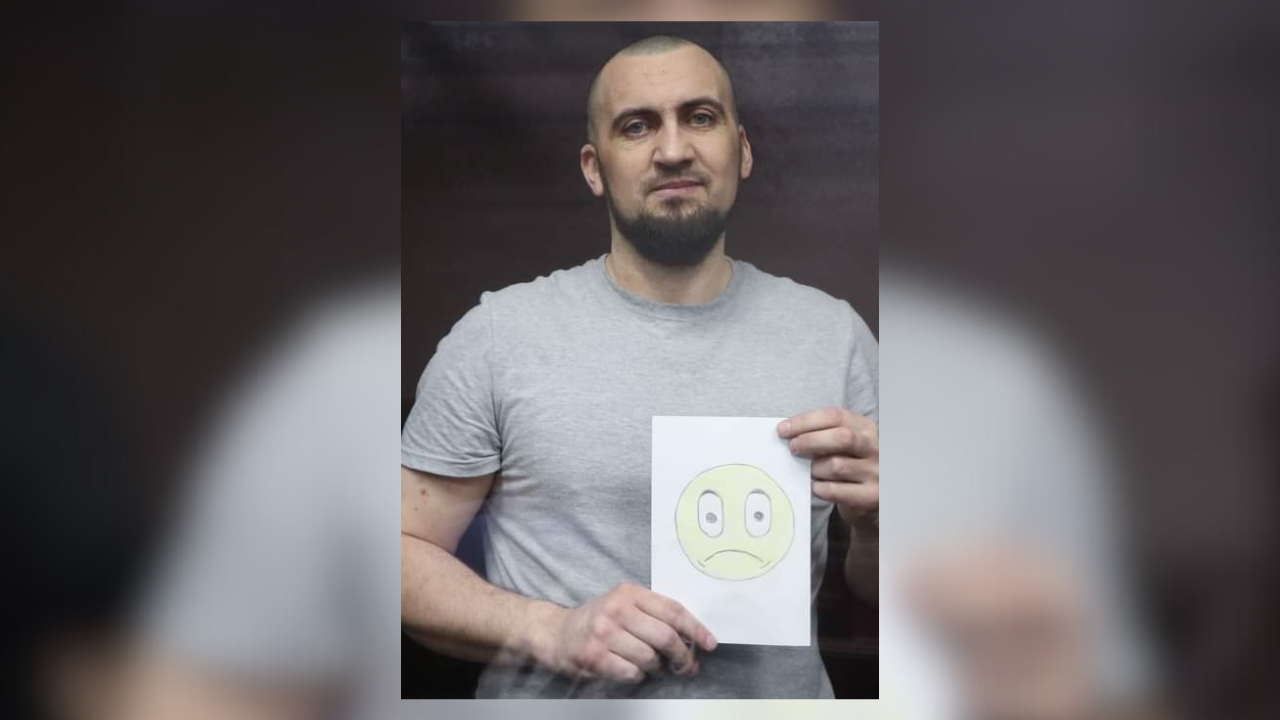
Denys Lialka during one of the court hearings of the “Kherson Nine”
In the winter of 2022, the Russians began illegally prosecuting the nine Kherson residents. Since then, their detention has been regularly extended. The prisoners’ families are not provided with any “court documents.” However, Yuliia learned how the Russians lie about detaining the Ukrainians in late October rather than in the summer. Also, during one of the so-called “hearings,” the investigator was using a laptop that the occupiers had confiscated when they abducted Denys.
“I looked at him, and he told me that he would use it for a while and then return it,” Denys recalls.
Beatings and 27 People in One Cell
In March 2023, the Russians transferred Serhii Ofitserov, Oleh Bohdanov, Yurii Tavozhnianskyi, Serhii Kabakov, Serhii Kovalskyi, Kostiantyn Reznik, Serhii Heidt, Yurii Kaiov, and Denys Lialka to Detention Center No. 1 in Rostov, where they are still being held. Yuliia explains the conditions there are dreadful.
“Some places have no windows, and others have damp walls. It’s cold, the food is terrible, and no medical assistance is provided. My brother is in the most overcrowded cell—27 people. There’s nowhere to sleep.”
In Rostov, the Russians also force the Ukrainian prisoners to sing the Russian national anthem daily. When the captives are taken out for walks, the guards throw sticks at them—some are hit on the legs, others on the head. Recently, the Russians have been coercing the “Kherson Nine” into slandering their lawyers and renouncing them. The guards take those who disagree to the basement and beat them. The prisoners do not dare to complain, fearing they will be placed in even worse conditions. As a result of this relentless abuse, Denys Lialka is losing hope and fears that Ukraine has forgotten about them. Amid the horrors of Russian captivity, he wrote a poem.
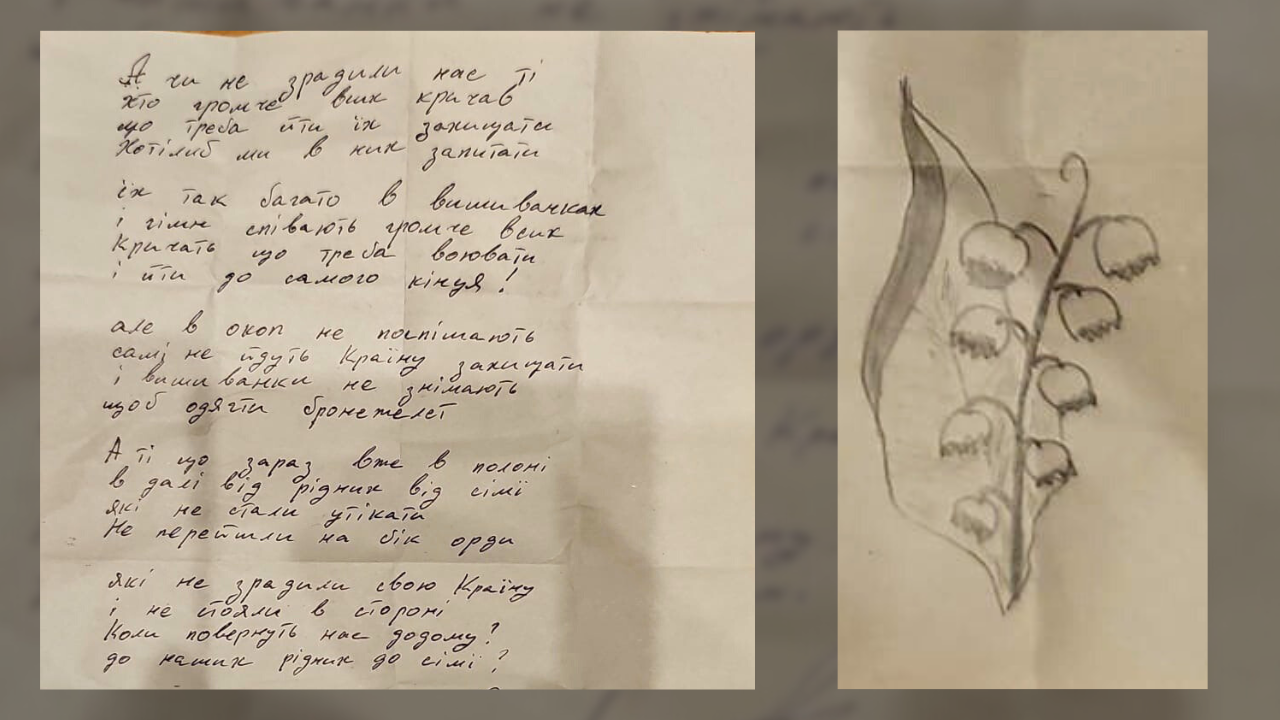
A poem by Denys Lialka, sent from imprisonment in Russia. On the same sheet, the prisoner drew a flower
Currently, at Denys’s request, Yuliia is reaching out to Ukrainian state authorities, urging them to help secure her brother’s swift release.
This article was made possible by support from the Dutch Ministry of Foreign Affairs.





